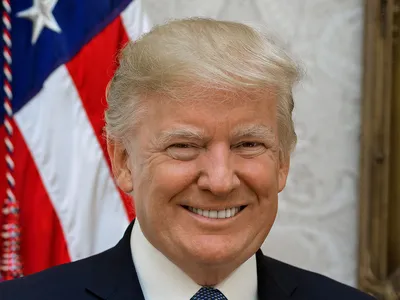
Trump Pledges to Further Reduce Taxes for Businesses Employing Americans
In a bold statement aimed at energizing his base and addressing economic challenges, former President Donald Trump recently pledged to implement further tax reductions for businesses that prioritize American employment. This announcement reflects his ongoing commitment to revitalize the U.S. economy, boost job creation, and incentivize companies to keep jobs within the country.
The Rationale Behind the Pledge
Trump’s economic strategy has consistently centered on the principle of “America First,” promoting policies that favor domestic production and employment. By proposing additional tax cuts for businesses that hire American workers, he aims to create a more favorable economic environment for companies willing to invest in the American workforce. This approach resonates particularly with his supporters, who often voice concerns about outsourcing and the loss of manufacturing jobs.
According to Trump, these tax incentives could serve as a catalyst for economic growth, driving companies to increase their hiring and expand operations within the United States. He argues that reducing the tax burden on businesses will enable them to reinvest their savings into their workforce, leading to higher wages and better job security for American workers.
The Economic Context
The U.S. economy is currently facing various challenges, including inflationary pressures and shifts in global supply chains. Many businesses are still recovering from the disruptions caused by the COVID-19 pandemic. In this context, Trump’s pledge could be seen as a timely intervention to encourage companies to prioritize American jobs over cheaper labor markets abroad.
Supporters of the proposal argue that tax cuts could lead to a significant increase in capital investment, which is essential for innovation and productivity. By freeing up resources, businesses may be more likely to expand operations, hire more employees, and contribute to local economies.
Criticism and Challenges
While Trump’s proposal may be appealing to many, it is not without its critics. Opponents argue that such tax cuts could exacerbate the federal deficit, especially if not accompanied by a comprehensive plan to offset the loss in tax revenue. They caution that prioritizing tax reductions for certain businesses could lead to an uneven playing field, where only specific sectors benefit while others struggle to compete.
Moreover, some economists question whether tax cuts alone are sufficient to stimulate job growth. They emphasize that other factors, such as workforce development, infrastructure investment, and education, play crucial roles in fostering a robust job market. Critics also point to the risk that businesses might prioritize short-term profits over long-term investments in their employees.
The Political Landscape
Trump’s pledge comes at a time of heightened political tensions, with both parties vying for voter support ahead of the upcoming elections. By championing tax cuts for American workers, Trump seeks to galvanize his base and appeal to undecided voters who prioritize job creation. He aims to position himself as a pro-business candidate dedicated to the interests of the American workforce, countering narratives that focus on corporate greed and globalization.
Additionally, this announcement may serve to differentiate Trump from his potential opponents, many of whom advocate for more progressive economic policies that include higher taxes on corporations and increased regulation. In a political climate marked by polarization, Trump’s focus on tax reductions for American employers could resonate with those who feel overlooked by the establishment.
Conclusion
As Trump embarks on his campaign, his pledge to further reduce taxes for businesses that employ Americans is a strategic move that underscores his commitment to American workers and the economy. While the proposal has the potential to spark job creation and economic growth, it will also face scrutiny and debate over its implications for fiscal responsibility and equity. As the political landscape evolves, how this pledge is received by voters and policymakers will play a critical role in shaping the future of American economic policy.
Leave a Reply